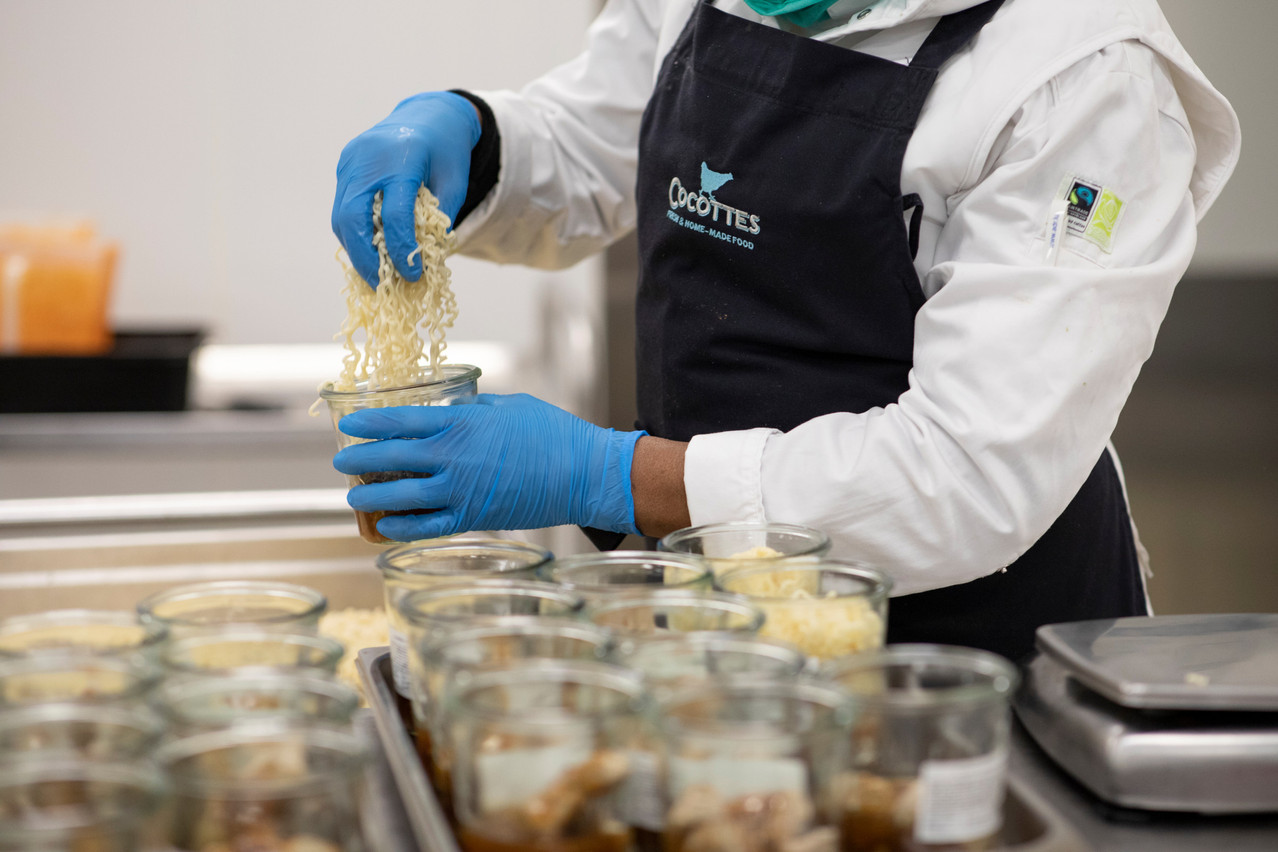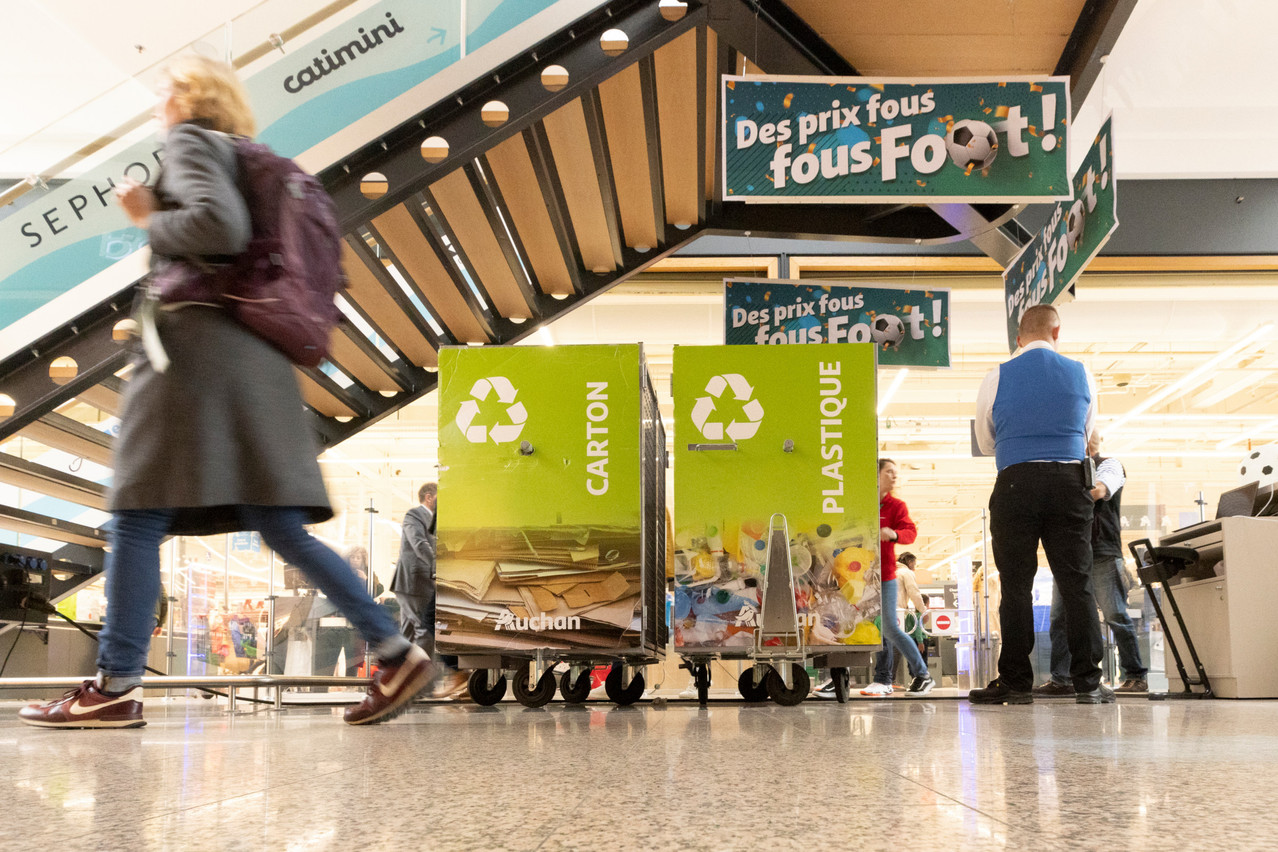The left no one indifferent: the waste law will begin to generate new impacts as of 1 January next year, both in the catering industry and in large-scale distribution.
The law stipulates that food retail outlets of more than 400 m2 must have a collection point for packaging waste. According to the Confédération luxembourgeoise du commerce (CLC), this law concerns 160 sales outlets in Luxembourg.
We question the proportionality of the measure.
“The main role of supermarkets is to provide supplies to the population, whereas with this law, they are being asked to enter a third domain. We question the proportionality of the measure,” adds Claude Bizjak, deputy director of the CLC.
Measures already visible in certain brands
Some supermarket chains are already ready, such as Auchan, which has been offering a system for collecting packaging waste at the checkout in its Kirchberg hypermarket for months. The Delhaize outlets in Alzingen, Bertrange, Capellen, Strassen and Walferdange are already equipped with this system.
Read also
“For shops without waste disposal, mainly the Proxy stores, we are in the process of validating different models of waste disposal depending on the space available in order to respect safety distances and not to hinder the circulation of customers,” explains , country director of Delhaize in Luxembourg. The company estimates that the system will require one to two m2 of space. “The collection points will probably not be used much by consumers, as we have seen in shops already equipped with them,” he says.
Reusable cups at fast-food restaurants
As for restaurants, they are obliged to serve drinks consumed on the premises of the infrastructure in reusable containers and cutlery. Only paper is still accepted as disposable packaging.
The focus is on snack bars and fast food outlets, where some changes are in the offing. “We are planning to equip ourselves with returnable plastic cups for drinks. We sell between 400 and 500 of them every day in this restaurant,” says Alexandre Goepfert, deputy manager of the Burger King on Avenue de la Gare. The establishment is also obliged to equip itself with a second dishwasher for these new compulsory elements from 1 January.
The staff will have to juggle between preparing orders and taking back the cups, hoping that the deposit will encourage passing customers to return the containers to the counter.
More changes in 2024 and 2025
The waste law stipulates that within a little over a year, supermarkets of more than 1,500 m2 will have to equip themselves--on their premises--with infrastructure for the separate collection of household waste of paper, cardboard, glass, plastic, portable batteries and accumulators, metal packaging, composite packaging and electrical equipment waste.
We are very concerned about the complexity of the law and the costs involved, which will put some supermarkets in real economic danger.
“This part of the law is of great concern to us because of the complexity of its implementation--bringing waste to a place that has to comply with strict hygiene standards--and the costs that this will entail, which will put some supermarkets in real economic danger,” says the head of Delhaize Luxembourg.
Nearly 50 supermarkets are affected by the measure, which also raises a certain amount of caution on the part of the CLC. “Supermarkets already contribute to Valorlux, so this waste recovery unit is a double cost imposed on them,” says Bizjak.
The headache of reusable take-out packaging
As for restaurants, they will have to submit a roadmap by 1 January 2024 dedicated to the deployment--one year later--of reusable containers and cutlery that can be taken back for all orders sold for take-out and delivered to the home.
This represents a huge logistical challenge.
“It's a huge logistical challenge, we use an average of 1,500 cardboard boxes per week per Pizza Hut restaurant. Switching to a reusable and returnable container requires a lot of space and a huge cost,” says Savino Cascio, operation manager for five of the chain's outlets in Luxembourg. This is especially a challenge as some of the outlets clearly target a tourist clientele, for whom the probability of returning the packaging is low.
Read also
In the 17 Cocottes outlets, customers can already return their reusable jars of reheatable dishes in exchange for loyalty points. If the measure is extended to the entire range, the question of the weight of the lorries and the additional journeys to the production centre in Grass may arise, imagines Stéphanie Schleich, head of marketing and communication. “We are looking at different solutions, but there are still a lot of questions about the amount of resources involved,” she says.

Cocottes has adopted reusable glass jars for some of its preparations. (Photo: Guy Wolff/Maison Moderne)
“We have to ask ourselves whether this is really the right time to add costs to the food distribution chain,” insists Bizjak. He points to another obligation announced--that of selling fruit and vegetables under 1.5kg without packaging. “At least 90% of the fruit and vegetables sold in Luxembourg come from abroad, and producers are certainly not going to adapt their packaging to the Luxembourg law. We risk seeing supermarkets unpacking fruit and vegetables in stock to offer them in bulk, which will generate a lot of waste,” warns the deputy director of the CLC.
Certainly, the package of five laws passed last spring is likely to be talked about again in the days and weeks to come.
This story was first published in French on . It has been translated and edited for Delano.


